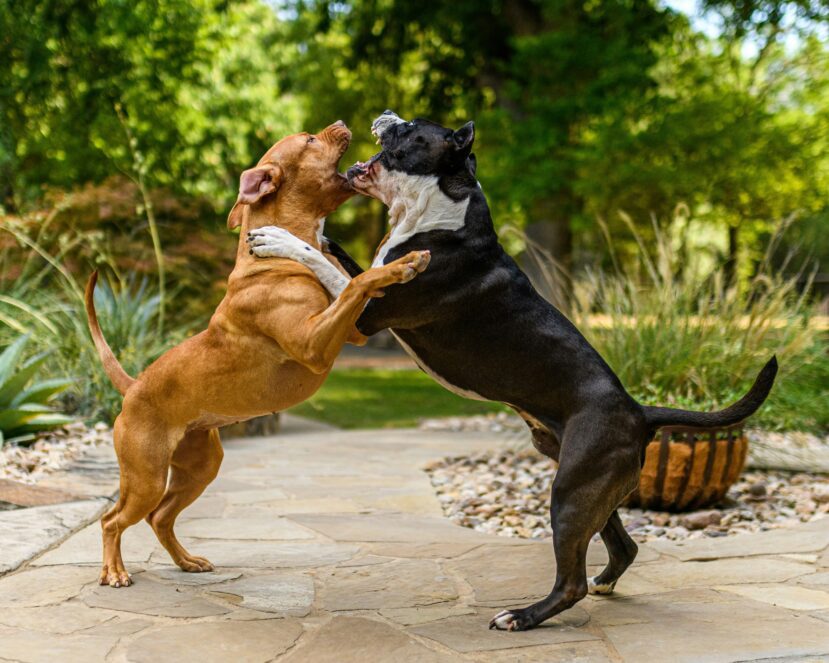Last Updated on May 18, 2024 by Dogs Vets
Discover the top dog behaviorist in London! Unlock a happy and balanced life for your furry friend with professional help.
Understanding Dog Behaviorists
When it comes to addressing behavioral issues in dogs, a dog behaviorist plays a crucial role in helping owners understand and modify their pet’s behavior. By seeking professional help from a qualified dog behaviorist, owners can effectively address behavioral problems and create a harmonious environment for their furry friends.
Role of a Dog Behaviorist
A dog behaviorist is a professional who specializes in understanding and analyzing dog behavior. They have in-depth knowledge of canine psychology and behavior patterns, allowing them to assess and address various behavioral problems.
The role of a dog behaviorist involves:
- Conducting thorough assessments to understand the underlying causes of behavioral issues in dogs.
- Identifying triggers and patterns that contribute to problematic behavior.
- Developing customized behavior modification plans to address specific behavioral problems.
- Educating owners on effective training techniques and strategies to modify their dog’s behavior.
- Providing ongoing support and guidance throughout the behavior modification process.
A dog behaviorist works closely with dog owners to ensure they have the knowledge and tools necessary to address their dog’s behavioral issues effectively.
Their expertise in canine behavior helps them identify the root causes of problematic behavior and implement appropriate strategies for behavior modification.
Importance of Seeking Professional Help
Seeking professional help from a dog behaviorist is crucial for several reasons. First and foremost, behavior problems can have a significant impact on the overall well-being and quality of life for both the dog and the owner.
Without proper intervention, these issues can escalate and lead to more serious problems.
A dog behaviorist brings a wealth of knowledge and experience to the table, enabling them to identify the underlying causes of behavioral issues accurately. They can create a tailored behavior modification plan that addresses the specific needs of the dog and the owner.
Professional guidance ensures that training techniques are humane, effective, and tailored to the individual dog’s temperament and behavior.
Additionally, a dog behaviorist provides invaluable support and guidance throughout the behavior modification process. They help owners understand their dog’s behavior, offering insights into why certain behaviors occur and how to modify them.
This knowledge empowers owners to build a stronger bond with their dog and create a balanced and harmonious environment.
By seeking the expertise of a dog behaviorist, owners can address behavioral problems effectively, improving the overall quality of life for both themselves and their furry companions.
To learn more about training methods and techniques that can help modify your dog’s behavior, consider exploring resources such as best dog food for training, dog obedience training in London, puppy training classes in London, and dog training schools in London.
These resources can provide additional information and support as you navigate the world of dog behavior and training.
Benefits of Hiring a Dog Behaviorist
Bringing a dog behaviorist on board can have numerous benefits when it comes to addressing behavioral issues and improving the overall well-being of your furry friend.
Let’s explore two key advantages of hiring a dog behaviorist: behavioral modification and the training techniques they employ.
Behavioral Modification
One of the primary benefits of working with a dog behaviorist is their expertise in behavioral modification. Behaviorists are trained professionals who can identify and address problematic behaviors exhibited by your dog.
Whether it’s aggression, separation anxiety, excessive barking, or fear-based behaviors, a behaviorist can develop a tailored plan to modify these behaviors effectively.
Through observation and assessment, a behaviorist can understand the underlying causes of the unwanted behaviors.
They can then create a behavior modification plan that focuses on positive reinforcement and rewards-based training techniques. This approach helps to reshape your dog’s behavior by replacing undesirable actions with more appropriate ones.
By working closely with a behaviorist, you can gain a deeper understanding of your dog’s behavior and learn effective techniques to address and manage it. This not only improves the well-being of your dog but also enhances the bond between you and your furry companion.
Training Techniques Used by Dog Behaviorists
Dog behaviorists utilize various training techniques to address behavioral issues and teach new skills. These techniques are designed to promote positive, humane, and effective training methods.
Here are a few commonly used techniques employed by dog behaviorists:
- Positive Reinforcement: This technique involves rewarding desirable behaviors with treats, praise, or play. By rewarding good behavior, your dog learns to associate positive outcomes with specific actions, encouraging them to repeat those behaviors.
- Clicker Training: Clicker training is a form of positive reinforcement that uses a clicker device to mark desired behaviors. The click sound is followed by a treat or reward to reinforce the behavior. This technique helps in teaching dogs new commands and tricks.
- Desensitization and Counterconditioning: These techniques are used to address fear or anxiety-related behaviors. Desensitization involves gradually exposing your dog to fear-inducing stimuli in a controlled and positive manner. Counterconditioning focuses on changing your dog’s emotional response to these stimuli, replacing fear or anxiety with positive associations.
- Target Training: Target training involves teaching your dog to touch or follow a specific target, such as a stick or your hand. This technique can be used to teach a wide range of behaviors, including leash manners, recall, and agility training.
Remember, the specific techniques used by a dog behaviorist may vary depending on your dog’s individual needs and the behavior being addressed. The behaviorist will assess your dog and create a customized training plan tailored to your dog’s temperament and behavioral challenges.
Working with a qualified dog behaviorist can provide you with the knowledge, guidance, and support you need to address behavioral issues effectively.
By implementing positive reinforcement techniques and customizing training methods to suit your dog’s needs, a behaviorist can help you achieve a harmonious and balanced relationship with your furry companion.
Finding the Right Dog Behaviorist in London
When seeking professional help for your dog’s behavior issues, it’s essential to find a qualified and experienced dog behaviorist. In London, there are several factors to consider to ensure you find the right professional who can address your dog’s specific needs.
Qualifications and Certifications
When searching for a dog behaviorist in London, it’s important to look for professionals with relevant qualifications and certifications. These credentials indicate that the behaviorist has undergone specialized training and education in the field of dog behavior.
Here are some certifications to look for when evaluating potential dog behaviorists:
| Certification | Description |
|---|---|
| Certified Applied Animal Behaviorist (CAAB) | This certification is awarded by the Animal Behavior Society and requires a master’s or doctoral degree in animal behavior. Behaviorists with this certification have a deep understanding of animal behavior and its application to various species, including dogs. |
| Certified Professional Dog Trainer (CPDT) | This certification is granted by the Certification Council for Professional Dog Trainers. While not specific to behaviorists, it demonstrates that the professional has undergone training and testing in dog training and behavior modification techniques. |
| Certified Dog Behavior Consultant (CDBC) | Awarded by the International Association of Animal Behavior Consultants, this certification signifies that the behaviorist has met specific educational and experience requirements in the field of dog behavior consulting. |
By ensuring that a dog behaviorist holds relevant qualifications and certifications, you can have confidence in their expertise and knowledge.
Experience and Specializations
In addition to qualifications, it’s important to consider a dog behaviorist’s experience and specializations. Every dog is unique, and some behavior issues may require specialized knowledge or techniques.
When evaluating potential behaviorists in London, consider the following:
- Experience: Look for behaviorists who have extensive experience working with dogs with similar behavior issues to your own. A behaviorist who has encountered a wide range of cases is more likely to have the expertise needed to address your dog’s specific needs.
- Specializations: Some behaviorists specialize in specific areas, such as aggression, separation anxiety, or fear-based behaviors. If your dog has a particular issue, finding a behaviorist with expertise in that area can be beneficial.
During your search, don’t hesitate to ask behaviorists about their experience and areas of specialization. This will help you determine if they have the necessary background to address your dog’s behavior concerns effectively.
Remember, finding the right dog behaviorist in London is crucial to the success of your dog’s behavior modification journey. By considering qualifications, certifications, experience, and specializations, you can make an informed decision and find a professional who is well-equipped to help you and your furry companion.
Working with a Dog Behaviorist
When seeking the assistance of a dog behaviorist, it’s important to understand the process of working with them. This section will outline the initial assessment and consultation, as well as the development of a customized behavior modification plan.
Initial Assessment and Consultation
The first step in working with a dog behaviorist is the initial assessment and consultation. During this process, the behaviorist will gather information about your dog’s behavior, history, and any specific concerns or issues you may have.
The behaviorist will likely ask you a series of questions to gain a comprehensive understanding of your dog’s behavior patterns, triggers, and responses. They may also observe your dog’s behavior in various settings to assess their reactions and interactions.
This assessment is crucial as it helps the behaviorist to identify the root causes of your dog’s behavioral issues. It provides them with valuable insights to develop an effective behavior modification plan tailored to your dog’s specific needs.
Customized Behavior Modification Plan
Based on the information gathered during the initial assessment, the dog behaviorist will create a customized behavior modification plan for your dog. This plan will outline the strategies, techniques, and exercises that will be used to address your dog’s behavior issues.
The behavior modification plan may include various components, such as:
- Training Techniques: The behaviorist will utilize a range of positive reinforcement training techniques to modify your dog’s behavior. These techniques focus on rewarding desired behaviors and redirecting or discouraging unwanted behaviors.
- Socialization Exercises: If your dog displays fear or aggression towards other dogs or people, the behaviorist may incorporate socialization exercises into the plan. These exercises help your dog become more comfortable and confident in various social situations.
- Environmental Management: The behaviorist may provide recommendations on how to modify your dog’s environment to support their behavior modification. This may involve creating safe spaces, implementing management tools, and removing potential triggers.
- Consistency and Follow-up: The behaviorist will emphasize the importance of consistency in implementing the behavior modification plan. They may schedule follow-up sessions to assess progress, make adjustments to the plan if necessary, and provide ongoing guidance and support.
Working closely with a dog behaviorist ensures that the behavior modification plan is tailored to your dog’s specific needs and addresses their unique behavioral challenges.
By following the plan and implementing the recommended techniques, you’ll be equipped with the tools to help your dog overcome their behavioral issues and create a harmonious relationship.
For more information on dog training and behavior, consider exploring resources such as books, online materials, dog obedience training in London, puppy training classes in London, and dog training schools in London.
Maintaining a Balanced Environment for Your Dog
To ensure the well-being and happiness of your beloved canine companion, it’s important to maintain a balanced environment that promotes positive behavior. This section will explore two key factors in achieving this: consistency in training methods and creating a safe and positive space for your dog.
Consistency in Training Methods
Consistency is key when it comes to training your dog and reinforcing desired behaviors. Dogs thrive on routine and predictability, so it’s important to establish consistent rules and expectations. This applies to all aspects of training, from basic obedience commands to more complex behavioral modifications.
When working with a dog behaviorist, they will provide you with a customized behavior modification plan tailored to your dog’s specific needs. It’s crucial to follow this plan consistently and implement the recommended training techniques.
Consistency in your approach will help your dog understand what is expected of them and reinforce positive behaviors over time.
In addition to training sessions, consistency should extend to daily interactions with your dog. This includes maintaining a consistent schedule for feeding, exercise, and playtime. Consistency in these areas helps to establish a sense of structure and stability for your dog, reducing anxiety and promoting a balanced state of mind.
Creating a Safe and Positive Space for Your Dog
A safe and positive environment is essential for your dog’s overall well-being. Creating such an environment involves a combination of physical and emotional factors.
Physically, it’s important to ensure that your dog’s living space is safe and secure. This includes providing appropriate fencing or containment systems to prevent escapes and potential dangers.
Inside the home, remove any hazards or toxic substances that could harm your dog. Additionally, provide your dog with comfortable bedding, appropriate chew toys, and access to fresh water at all times.
Emotionally, creating a positive space involves promoting a sense of security and reducing stress. This can be achieved through positive reinforcement training techniques, which reward desired behaviors with praise, treats, or play. Avoid punishment-based training methods, as these can lead to fear and anxiety in dogs.
Another way to create a positive space is by providing mental stimulation and enrichment. Engage your dog in activities like puzzle toys, interactive games, and regular exercise to keep them mentally and physically stimulated. This helps to prevent boredom, which can lead to destructive behaviors.
By maintaining a consistent training approach and creating a safe and positive space, you can foster a balanced environment for your dog. Remember that each dog is unique, and it may take time and patience to achieve the desired results.
Working with a qualified dog behaviorist will provide you with the guidance and support needed to ensure the happiness and well-being of your furry friend.
Resources for Further Learning
If you’re looking to expand your knowledge about dog behavior and training beyond working with a dog behaviorist, there are various resources available to help you on your journey.
Books and online materials, as well as local dog training events and workshops, can provide valuable insights and guidance for dog owners and enthusiasts.
Books and Online Materials
Books and online materials offer a wealth of information on dog behavior and training techniques. They can be a valuable resource for understanding your dog’s needs and learning effective training methods.
Here are some recommended books and online materials to consider:
| Resource | Description |
|---|---|
| “The Dog Listener: Learning the Language of Your Best Friend” by Jan Fennell | This book explores the concept of “Amichien Bonding,” a natural way of communicating with dogs based on their instincts and pack behavior. |
| “Don’t Shoot the Dog!: The New Art of Teaching and Training” by Karen Pryor | This book provides insights into positive reinforcement training methods and offers practical advice for training dogs effectively. |
| Online Dog Training Courses | Online courses and tutorials provide step-by-step guidance on various aspects of dog training, including obedience, behavior modification, and problem-solving. |
By exploring these resources, you can gain a deeper understanding of dog behavior and expand your training skills to create a harmonious relationship with your furry friend.
Local Dog Training Events and Workshops
Attending local dog training events and workshops is a wonderful way to enhance your knowledge and skills while connecting with other dog owners and trainers in your community.
These events often feature expert speakers, demonstrations, and hands-on activities. Here are some examples of local dog training events and workshops in London:
| Event | Description |
|---|---|
| Dog Obedience Training Workshops | These workshops focus on teaching basic obedience commands and addressing common behavioral issues. They provide a structured environment for both you and your dog to learn and practice together. |
| Puppy Socialization Classes | These classes are specifically designed for puppies to help them develop social skills, basic obedience, and good manners. They also provide an opportunity for puppy owners to learn from experienced trainers. |
| Dog Training Schools in London | Dog training schools offer a range of classes and programs for dogs of all ages and skill levels. They provide a structured learning environment and the opportunity to work with professional trainers. |
Attending these events and workshops can not only enhance your understanding of dog behavior but also provide practical training techniques and opportunities to socialize your dog in a controlled environment.
Remember, while these resources can be valuable, they should complement the guidance and support provided by a professional dog behaviorist.
Working with a dog behaviorist ensures that you receive personalized advice and customized behavior modification plans tailored to your dog’s specific needs.
Fact Check
We strive to provide the latest valuable information for pet lovers with accuracy and fairness. If you would like to add to this post or advertise with us, don’t hesitate to reach us. If you see something that doesn’t look right, contact us!























